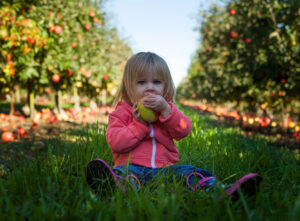04 May The role of organic food in the nutrition of children and adolescents: A sustainable approach.

“The use of organic products has a positive impact on the environment and promotes a more sustainable lifestyle.”
Nutrition is crucial in all stages of life, but it holds special importance during childhood and adolescence. During this stage, the body is in full development and requires a balanced and appropriate diet to grow and develop properly. Good nutrition is essential for preventing diseases and maintaining good health throughout life. In this regard, the use of organic products can make a significant difference in the health of children and adolescents.
At St. Paul’s School, organic food plays a fundamental role in our commitment to sustainability and health. By providing organic food options, we promote sustainable eating practices and raise awareness among students about the importance of making responsible choices regarding food and the environment.
What is organic food?
Organic products are those that avoid the use of genetically modified organisms and have been produced without the use of pesticides, herbicides, or other chemicals that can be harmful to health. Additionally, it has been demonstrated that organic products contain higher levels of nutrients compared to conventional products. These nutrients are essential for proper organism development, especially during childhood and adolescence.
The consumption of fruits, vegetables, and greens is essential in a healthy diet as they provide vitamins, minerals, and fibre. Organic products have a higher concentration of these nutrients, making them particularly recommended for growing children and adolescents.
Another important aspect is the consumption of proteins. Organic animal-based products, such as meat and eggs, have higher nutritional quality and lower levels of saturated fats and cholesterol compared to conventional products. Therefore, consuming these products can have a positive impact on the health of children and adolescents.
Is fish considered organic?
Wild fish living in the sea cannot be controlled in any way, and therefore, it cannot be claimed to meet the criteria encompassed within labelling requirements. That is why when we buy wild salmon, it never carries the organic certification.
The use of sustainable fish refers to the practice of capturing, farming, and consuming fish in a way that ensures the long-term conservation and protection of marine resources, while also promoting social and economic equity in fishing communities.
Through our management at St. Paul’s, we have reached agreements with different producers, thus supporting local businesses and their circular economy. By purchasing seasonal products, we help reduce the carbon footprint since there is only transportation of products without the need for long-term storage or preservation, as is the case with out-of-season products. At St. Paul’s, we firmly believe in the importance of organic food to promote sustainability and well-being for both our students and the environment.


